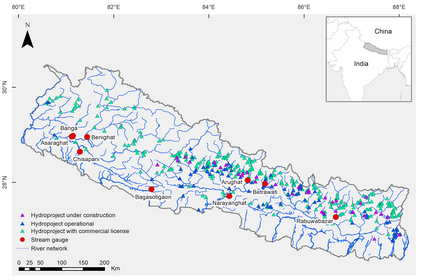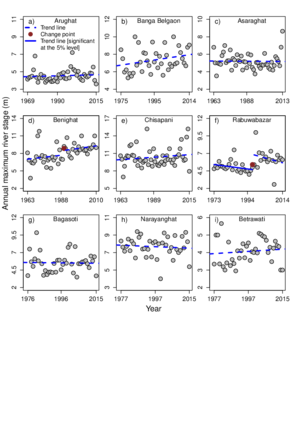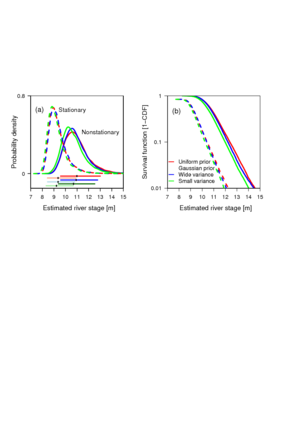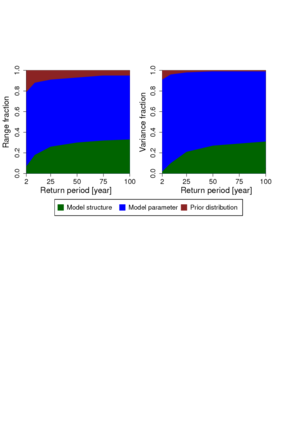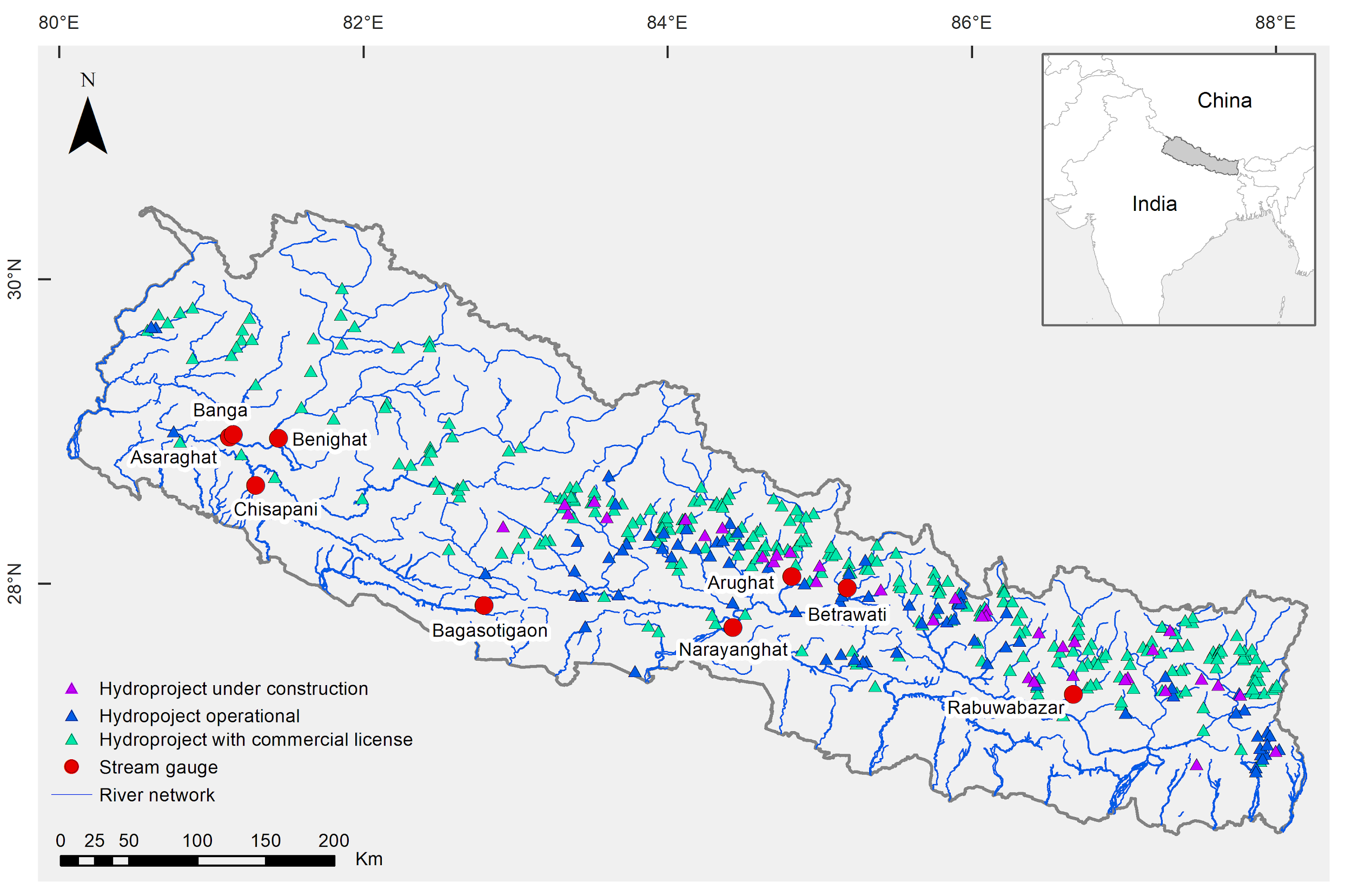Fluvial floods drive severe risk to riverine communities. There is a strong evidence of increasing flood hazards in many regions around the world. The choice of methods and assumptions used in flood hazard estimates can impact the design of risk management strategies. In this study, we characterize the expected flood hazards conditioned on the uncertain model structures, model parameters and prior distributions of the parameters. We construct a Bayesian framework for river stage return level estimation using a nonstationary statistical model that relies exclusively on Indian Ocean Dipole Index. We show that ignoring uncertainties can lead to biased estimation of expected flood hazards. We find that the considered model parametric uncertainty is more influential than model structures and model priors. Our results highlight the importance of incorporating uncertainty in river stage estimates, and are of practical use for informing water infrastructure designs in a changing climate.
翻译:河流洪水对河流社区造成了严重风险。有确凿证据表明,世界各地区洪水灾害不断增加。在洪水灾害估计中使用的方法和假设的选择会影响风险管理战略的设计。在本研究中,我们根据不确定的模型结构、模型参数和参数的先前分布来描述预期的洪水灾害。我们利用完全依赖印度洋二极指数的非静止统计模型,为河水级回归水平估算建立一个贝叶斯框架。我们表明,忽视不确定性可能导致对预期的洪水灾害的偏差估计。我们发现,所考虑的模型参数不确定性比模型结构和模型前期更有影响力。我们的结果突出了将不确定性纳入河级估计数的重要性,并切实用于在变化的气候中为水基础设施设计提供信息。

